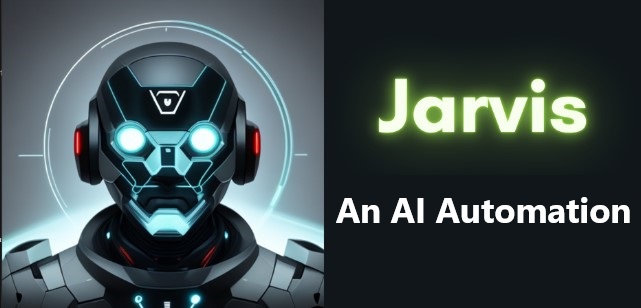Technological Warfare
A Global Outlook, Trends Towards Future Warfare
In today’s rapidly evolving world, wars are no longer limited to traditional battles fought on a physical basis. The rise of technology has dramatically changed the way countries engage in conflicts, giving rise to what is known as technological warfare.
Such type of warfare refers to the use of advanced weapons evolved with advanced technologies such as artificial intelligence (AI), cyber capabilities, drones, and more, in military operations.
With technology constantly evolving, the future of warfare is expected to be even more complex and impactful on a global scale.
Live Example: Operation Sindoor
What is Technological warfare?
Technological warfare involves the use of technology to gain a military advantage, which can include everything from cyber attacks to the deployment of autonomous weapons systems.
Unlike conventional warfare, which relies on physical force, technological warfare targets the opponent’s digital and technological infrastructure.
These include
- Cyberattacks – This includes hacking into critical systems to disrupt communications, steal data, or damage infrastructure.
- Autonomous weapons – Drones and robots are live example of Latest Technology and AI Advancements programmed to carry out military tasks without human intervention.
- Artificial Intelligence (AI) – AI used for surveillance, decision-making and even strategic operations on the battlefield.
- Cybersecurity – This is the only way to protect military and government networks from foreign cyber threats by implementing and adhering to cybersecurity standardization and policies.
Also Read: DeepSeek AI to Build Powerful Warplanes: Transforming Fighter Jet Design and Global AI Landscape
The Rise of Cyber warfare | Technological Warfare

One of the most significant aspects of technological warfare today is the rise of cyber-warfare. Countries are increasingly using digital attacks to disrupt each other’s critical infrastructure, whether it’s power grids, transportation networks, or government systems. These attacks can be launched remotely, making them difficult to trace and counter.
During Operation Sindoor – India jammed Pakistan’s air defence system and then retaliated swiftly, destroying Pakistani missiles and drones.
Some of the key areas where cyber-warfare plays a crucial role include
- Espionage: Governments use cyber tools to spy on their enemies, stealing sensitive information, which can give them a strategic advantage in planning to defeat them quickly.
- Disruption: Cyberattacks can disable key infrastructure such as power plants, hospitals or communication networks, causing chaos without firing a single shot.
- Manipulation: Countries can use cyber capabilities to influence public opinion, elections or even create divisions among enemy populations.
The Role of AI – Artificial Intelligence in modern warfare
The role of artificial intelligence in military operations is becoming increasingly important. AI powered systems can process large amounts of data in real time, providing significant benefits to soldiers and commanders.
Some of the uses of AI in warfare
- Autonomous vehicles: Drones and robotic vehicles that can carry out missions without human input, minimizing the risk to soldiers.
- Predictive analytics: AI systems that analyze patterns and predict potential threats, helping military forces prepare for future attacks.
- Intelligence gathering: AI can analyse vast amounts of intelligence data from satellites, surveillance drones and social media to identify threats.
Also Read: Meta Launches New Meta AI App; for Smartphones with Voice Chat, Discover Feed and Meta smart glasses
Global impact of technological warfare
The global outlook on technological warfare is both exciting and worrying. On the one hand, technology has made warfare more precise and efficient, reducing casualties in some cases.
On the other hand, the consequences of technological warfare could be devastating, especially when considering the risks associated with cyber attacks and AI-driven systems.
Some of the global effects include
- Increased tension between nations: As countries develop new technologies, there’s a growing arms race in the digital domain. Nations are investing heavily in AI, cyber capabilities, and autonomous systems, which could lead to increased global tensions.
- Impact on civilian populations: Technological warfare can blur the lines between military and civilian targets. Cyberattacks on critical infrastructure can cause widespread suffering and chaos, affecting innocent civilians.
- New ethical dilemmas: The use of AI in warfare raises significant ethical concerns. Should machines be allowed to make life and death decisions? The question is what if an AI system makes a mistake and causes unnecessary destruction?
The Future of technological warfare
The future of warfare will undoubtedly be determined by technology. Advances in AI, quantum computing, and cybersecurity will continue, leading to new ways to fight conflicts.
However, the increasing reliance on technology in warfare also poses new risks.
Key trends to watch include
- AI-Controlled weapons: Autonomous weapons that make decisions without human intervention could redefine the way conflicts are fought.
- Quantum computing: Quantum computers have the potential to break current encryption methods, giving one nation a significant advantage over another in cyber-warfare.
- Future space warfare: As space becomes a new frontier for warfare, countries are developing technologies to defend their satellites and disrupt those of their adversaries.
Technological warfare a different mind set or ethical discussion
- Technological warfare has become an integral part of modern conflicts, transforming the ways nations defend themselves and attack others.
- From cyber attacks to the rise of AI driven weapons is changing the nature of warfare. The global outlook on technological warfare presents both opportunities and risks.
- As technology advances, the need for international cooperation, cybersecurity and ethical discussions will grow.
- Nations must address these challenges carefully to ensure that future warfare is not only efficient, but also ethical and responsible.
Technological-Warfare – Future Warfare

Discover more from Newz Ticks
Subscribe to get the latest posts sent to your email.





